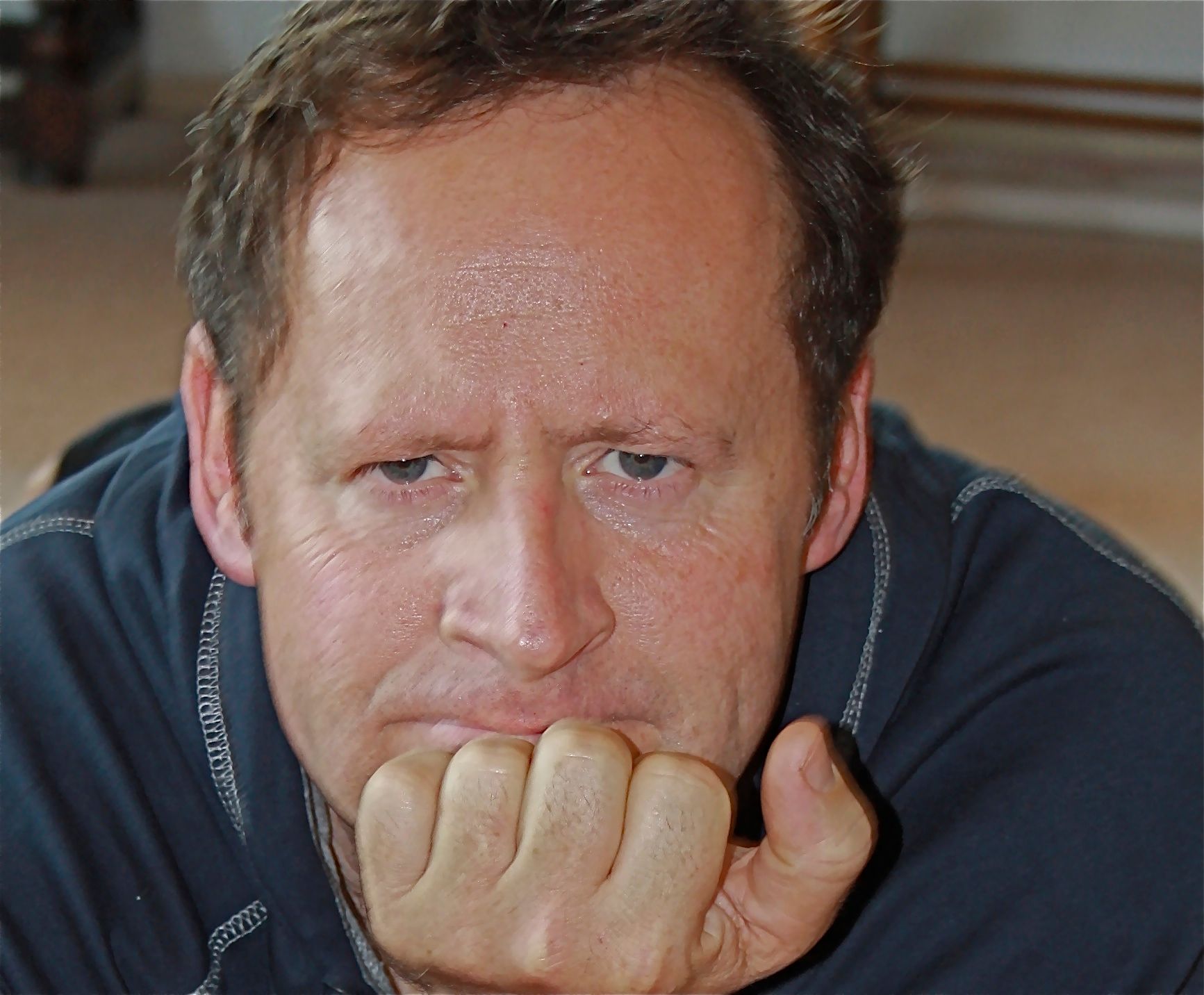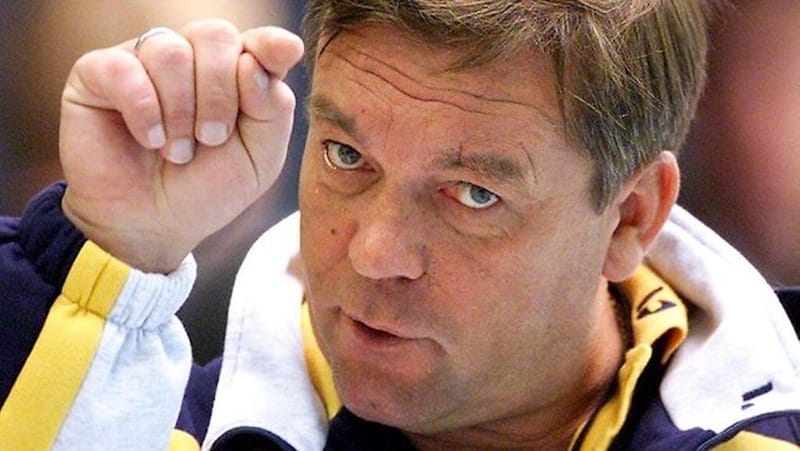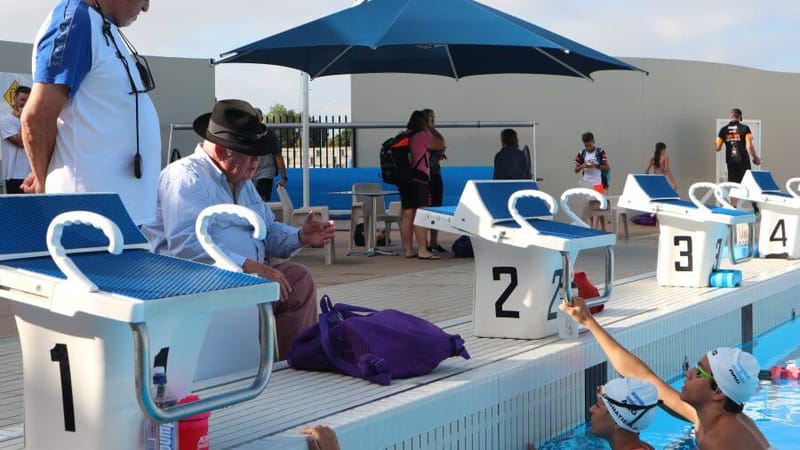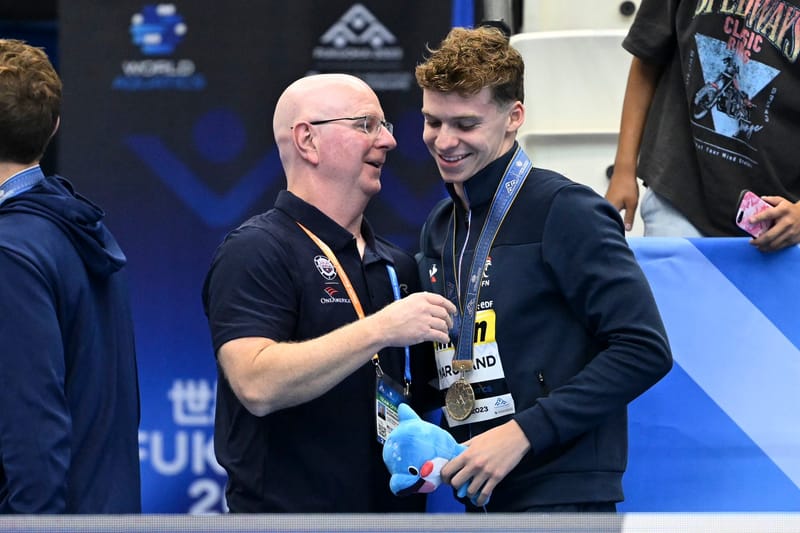On The Trail Of Excellence With Dr. Peyrebrune
“I feel very fortunate to have had so many mentors ... From Turner to Sweetenham, Armiger and Titley, McNulty and Marshall, Furniss and full circle to Manley; all these coaches have had a profound and long-lasting impact on my knowledge and experience" - Mike Peyrebrune - Part 2
At Athens 2004, Britain’s great progress in international waters at World and European levels, as well as the Commonwealth Games racing for home nations, since Bill Sweetenham’s arrival as performance head, was perceived to have stalled, as five or six medal chances ended in two bronzes, one for David Davies in the 1500m freestyle, the other for Stephen Parry in the 200m butterfly.
Why perceived? That’s the nature of icebergs. The vastness you can’t see not only keeps afloat the small but essential island we all see in the lights on race day, it’s the birth place and forge of all outcomes.
Counting the golds and other medals is unquestionably a reasonable measure of national-team success, both because it reflects the ultimate goal and achievement of competition and it recognises the return on the money invested in sport by the public paying for ring-fenced lottery tickets, regardless of whether their eye is on the sport or the dream house on a hill with a Porsche parked outside.
Below that surface snapshot of podiums, photo opps’ and the broadcasts that grant a relative few minutes in which an entire sport gets to sell its shop window to the wider world once every four years, there’s a whole universe of cutting-edge, competitive challenges.
Just below the podium, the reality of near-misses is a harsh one. Just ask Hannah Miley and Max Litchfield, for example: put them together in a sentence with 400IM and you have five close shaves with the Olympic podium at the past five Olympic Games in just one event. All their efforts, many years in the making, were largely confined to a passing line in media reports, if that, the measure of medal/no medal the length of a human hand or less.
That gap also marks the difference between heading to the front of the plane on the way home to an airport reception and reunion with parents and family, TV crews and reporters on standby to spread the word on ‘what it takes’, and heading to the back of a plane you will then leave only when the medallists have left and been taken down a separate corridor to a different world.
Then there are the others who make finals that confirm towering commitment (from athlete, coaches, parents and their hidden subsidy of Olympic sport, sports scientists and others) to the pursuit of world-class performance, often since the swimmer was a young child, in a variety of ways; the lean-to-swim pool and the club where friendships are formed and skills honed long before they world knows the names of Olympians to be; and all of that a part of the lifelong benefits of the discipline, dedication and determination nurtured in the pool.
Progress starts with education, and ends way beyond the narrow measure of a medal, even for most world-class swimmers, some of whom rarely, if ever, make it to international waters, by virtue of their birth in places with long traditions of swimming excellence and global rules that limit the number of participants by nation regardless of the ranking lists that reflect world-class status in a far more realistic way than the participating symbol OLY attached to every swimmer who represented their nation at a Games, regardless of standard.
And in the mix of all of that and much more, there are the contributions and lifelong careers like that of Dr. Mike Peyrebrune; there’s the underlying nature of Sweetenham’s mission to Britain - coaching the coaches - and how such things form part of a rich weave of swimming evolution. Here’s part 1 of a series of interviews with Mike, among other experts, which spill from the book of SOS homework on the way to a new venture:
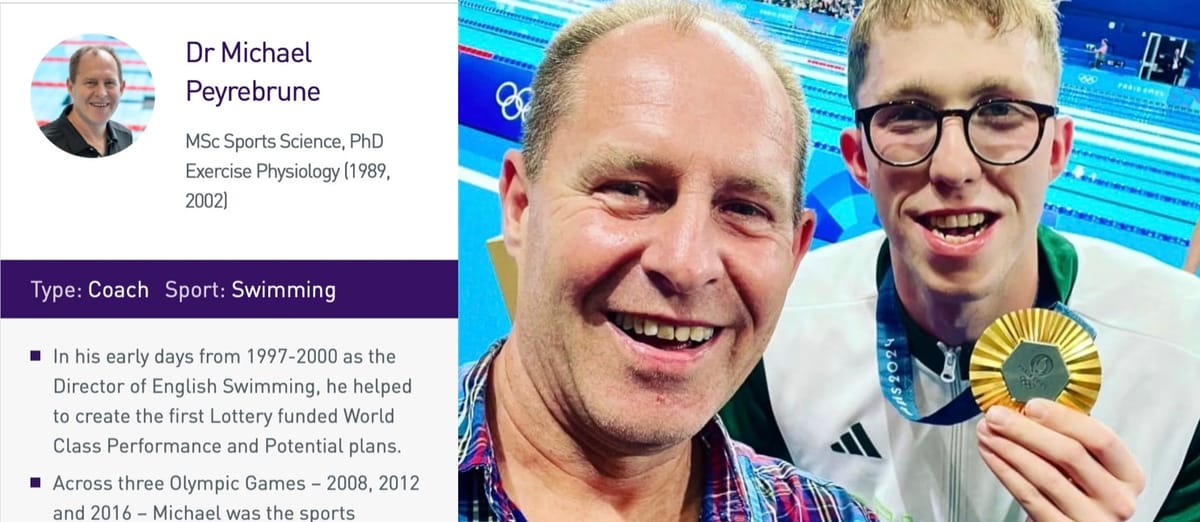
This feature, part 2, hones in on one of the tiers of work in the performance pool that rarely gets wider recognition, but forms part of a vast network of shared knowledge integral to the thread of swimming’s evolution. It speaks to the following insight from a reader in response to part 1:
“One of the most remarkable things I recall from the last 30+ years is the impact that Bill Sweetenham’s constant expressions of how to use subject-matter experts as part of the team to improve individual athletes' performance has filtered into the mainstream of coaching thought. Nowadays, as opposed to let me say, pre-1980 no self-respecting aspiring world-class coach would think of trying to be the only input into an athlete that they expected to be world class. Prior to that, in my opinion, the majority of coaches - granted, there have always been exceptions - seem to have been much more egotistically inclined to want only one input in the athletes’ ear. I credit this entirely to coach Sweetenham’s influence and the pervasive nature of his thoughts drip-dripping down throughout the coaching ranks.”
Those thoughts dovetail with Peyrebrune’s voyage. It would not be unfair to others to suggest a former teammate in Scotland was right when he suggested Mike was the first person in Britain to have properly planned periodisation training. By the time Deryk Snelling left Britain in 2000 after serving the first few years as the national team’s first performance director for swimming, Mike had already started to think about the evolution of the lessons from his own years as an swimmer and his academic approach to the art and alchemy of swimming speed and the long-term planning and process required to unlock the best of a swimmer. Now Dr. Peyrebrune, he recalls:
“Bill [Sweetenham] was the one who really took that information and drove the process more with the coaches in terms of a four-year plan, what a single year looks like as part of the building blocks of longer-term work that make up cycles within a quadrennial cycle.”
As our introduction suggested, not all went smoothly in the Sweetenham years, but the lessons learned, the mindsets shaped, attitudes sharpened and the expertise embraced between late 2000 and late 2007 led to and fed into a punctuated transition from one Bill to another, Sweetenham (and style) to Furniss (and style). Their job descriptions were not the same but both played the role of lead coach to coaches and their swimmers, holding hands with an entourage of realm-specific informed scientific and academic guides.
With Peyrebrune, we now retrace some of the key events and developments that helped make Paris 2024 golden for Dan Wiffen, Ireland, coach Andi Manley and the Loughborough performance centre, the roots of the work that shaped the outcome stretching back decades.

